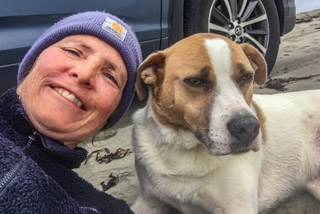Reframe Negatives
Reframe Negatives
Reframe: Turn Negatives into Positives
A trick I explored recently is looking at negative or stressful events in a new way, called reframing. Before you say, “I don’t want to read about dread, worry, anxiety, and bad habits. Just teach me how to get unstuck!” consider this: what if we look at them as coping strategies that are simply trying to help us?
Every habit is there to serve a purpose. If we reframe our view of “bad habits” into something that is trying to help us, we can find substitutions and lessen their power over us.
When you have a bad experience, try asking yourself open-ended questions to find the “silver lining.” Perhaps you learned something new about yourself. Or you met someone kind and helpful you might not have otherwise met. Maybe you learned how imperative it is to never have that same experience again.
An “open-ended question” is one that cannot be answered with simple one-word responses such as “yes, no, or maybe.” Such questions require deliberate thought, usually phrased with words like who, what, where, when, and how. Some examples might include, “How might you view that experience in a way that doesn’t increase anxiety?” or “What takeaway lesson did you learn about yourself or others that might help you in the future?”


Reframe Negatives: A Snowstorm's Silver Lining
The most memorable example I can share is about returning to Seattle from a holiday visit in North Carolina years ago. My family got caught in bad weather in the middle of the United States. Our connecting flight had been overbooked while others were getting rescheduled for the next day. Staying overnight was not an option for us, as hotels were all booked. The airline attendant helped find an earlier flight for my husband connecting through Denver, while my daughter and I waited for a direct flight that would take off for Seattle an hour later.
The silver lining — and what I remember most about what could have been a major headache — was flying first-class with my daughter. We landed at SeaTac Airport just a few minutes after my husband, due to more flight delays. We did not have to camp out in an airport like many people across the Midwest, nor did we have to travel separately in economy class. Conditions that could have ruined our trip actually left us with pleasant memories. The bonus? Our bags somehow made it home before we did!
What Do Bad Habits Say That’s Positive About You?
Similarly, try reframing any bad habits you want to change. What’s good about that habit? If you spend a few hours watching a movie with your spouse, dog, and kids, think about what such a choice might say about you besides “I know better. I’m too lazy and I never get enough sleep.”
Maybe it means that you’re doing your best to spend time with your family. It might mean that you’re giving yourself some much-needed downtime following a stressful day of work. Perhaps you value doing things together instead of isolating on cell phones. Watching a documentary and discussing what you’ve seen could also educate and inspire younger family members. Not to mention it allows you to keep tabs on everyone when being out and about might be considered unsafe.
Identify What May Be More Helpful

If it is still a habit you really want to change, what habit might you put in its place? If you want to stop drinking every evening, perhaps you could try replacing alcohol with seltzer and lime. Maybe you could unwind by taking an after-dinner stroll or an easy bike ride. If you still want to watch TV, consider setting a timer or alarm clock at a specific time to remind you when to turn off screens and shift gears into preparing for sleep.
Bad habits do not make you a bad person, just like traumatic events don’t define you. Try reframing your habits and seeking the silver lining in the negative events. Then share your experiences in the comments below. And if you need help making changes, I would love to start a dialog with you about how coaching can help you do so.





